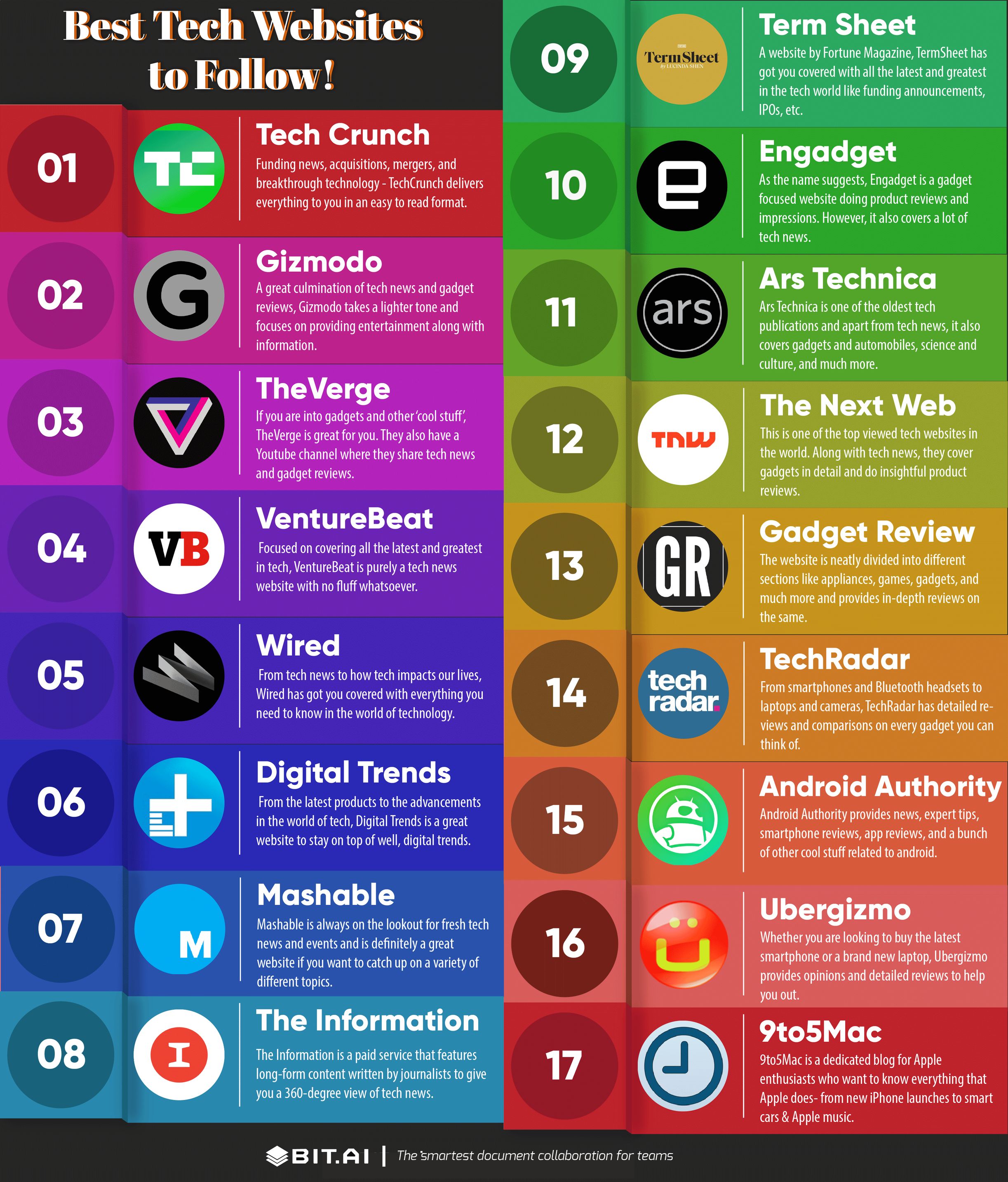The Best tech blog: Your Necessary Guide to Browsing the Digital World
The Best tech blog: Your Necessary Guide to Browsing the Digital World
Blog Article
Exactly How Blockchain Innovation Is Revolutionizing Data Safety
Blockchain modern technology is fundamentally changing the landscape of data security by introducing a decentralized framework that assures boosted transparency and resilience. Unlike traditional systems, which depend on central information repositories, blockchain disperses data across a network, lessening susceptabilities and solitary points of failing. Making use of advanced cryptographic methods ensures that information continues to be tamper-proof, fostering depend on among stakeholders and users. As sectors quickly adapt to this modern technology, concerns arise concerning its broader influence and prospective obstacles. What ramifications does this shift hold for future data security techniques and governing frameworks? The answers might surprise you (Best tech blog).
The Fundamentals of Blockchain
Blockchain modern technology, an innovative principle in electronic information management, essentially transforms how info is saved and protected. At its core, a blockchain is a dispersed ledger that videotapes deals throughout a network of computer systems, making certain transparency and immutability. The technology runs on a chain of blocks, each including a checklist of purchases. Once a block is loaded, it is time-stamped and linked to the previous block, creating a chronological chain.
Key to recognizing blockchain is the hashing process, which secures deal data right into an unique alphanumeric code. This cryptographic feature makes certain that any alteration in the deal information results in an entirely various hash, thus securing against meddling. The agreement system, another crucial component, validates and verifies new purchases via a network of nodes, therefore removing the requirement for a central authority.
In addition, blockchain's append-only structure makes certain that data, as soon as added, can not be removed or altered. This characteristic guarantees a proven and irreversible document of transactions, promoting trust fund amongst individuals. As an outcome, blockchain offers a robust structure for information integrity, providing sectors a dependable method for monitoring and managing digital information in a protected, clear manner.
Decentralization and Protection
Decentralization, a core principle of blockchain modern technology, substantially enhances data security by dispersing control throughout a network as opposed to counting on a single, central entity. This distribution mitigates the danger of solitary factors of failing, which prevail in standard centralized systems. By distributing information across various nodes, blockchain makes certain that even if one node is endangered, the entire network stays protected. This redundancy not only strengthens the stability of the data yet additionally raises its durability to cyberattacks and system failures.

Moreover, decentralization equips users with better control over their data. Each participant in the network has accessibility to the entire blockchain, enabling them to validate and investigate deals separately. This openness cultivates trust among users, as they do not have to rely upon a main authority to make sure data stability. On the whole, decentralization contributes in enhancing data security in blockchain networks.

Cryptographic Techniques
At the heart of blockchain innovation, cryptographic techniques play an essential role in safeguarding data, making certain both discretion and integrity. These techniques are fundamental to the blockchain's ability to securely tape deals in a decentralized fashion. Cryptography in blockchain uses a combination of symmetrical and asymmetric algorithms to secure information, making it available just to authorized parties - Best tech blog. Public and personal essential pairs are central to this procedure, permitting protected authentication and identification verification without revealing sensitive details.
Hash features are another essential element, transforming input data into a fixed-size string of characters, effectively producing a special digital fingerprint for every block. This guarantees that any type of effort to change the data will certainly result in a totally various hash, therefore keeping the immutability of the blockchain. Moreover, digital signatures confirm the credibility and stability of deals, supplying a layer of non-repudiation.
The decentralized nature of blockchain, integrated with robust cryptographic techniques, gets rid of the need for middlemans, minimizing potential vulnerabilities. As blockchain modern technology advances, improvements in cryptography such as zero-knowledge evidence and homomorphic security proceed to enhance safety and security actions, better strengthening information security in this innovative digital journal system.
Use Instances Throughout Industries

In the medical care industry, blockchain ensures review the safe and secure storage and sharing of patient documents, advertising interoperability while guarding sensitive information from unapproved gain access to. This innovation encourages individuals with control over their clinical history and helps with seamless sychronisation among health care providers.
Supply chain administration benefits significantly from blockchain's immutable journal, which makes certain traceability and authenticity of items from beginning to customer. By boosting transparency, blockchain helps reduce issues such as counterfeiting and unethical sourcing.
Additionally, blockchain's decentralized nature is reshaping the energy field by enabling peer-to-peer energy trading, where consumers can purchase and sell excess sustainable power straight. This fosters a more reliable and sustainable power ecosystem.
In the realm of copyright, blockchain offers a tamper-proof system for developers to register and secure their works, making certain rightful attribution and fair settlement. These varied use instances underscore blockchain's duty as a critical pressure in redefining data safety across markets.
Future of Data Protection
As we want to the future of information security, blockchain modern technology is positioned to play a pivotal role in protecting electronic information. With its decentralized and immutable features, blockchain uses a robust structure for safeguarding sensitive data against unapproved gain access to and cyber risks. This innovation guarantees that as soon as information is tape-recorded, it is almost difficult to alter without detection, hence giving a considerable benefit over typical information storage techniques.
The assimilation of blockchain with various other innovative modern technologies, such as expert system and the Web of Points (IoT), is anticipated to boost data defense methods additionally. By leveraging clever agreements, organizations can impose and automate security methods, lowering human mistake and increasing efficiency. Additionally, blockchain's capability to supply deducible and transparent transactions will boost trust fund and liability in information management techniques.
As regulative landscapes progress, blockchain's compliance-friendly nature will certainly end up being significantly relevant. It can assist companies meet rigid data defense laws, such as the General Data Security Policy (GDPR) and the California Customer Privacy Act (CCPA), by giving verifiable records of information processing tasks. Eventually, blockchain's special attributes position it as a transformative tool in the recurring pursuit to safeguard the electronic world against ever-evolving cyber dangers.
Verdict
Blockchain modern technology stands for a paradigm shift in data protection by leveraging decentralization and cryptographic strategies to improve openness, depend on, and information stability. Its ability to eliminate single points of failure and use consensus mechanisms substantially minimizes the danger of scams and cyberattacks. This cutting-edge structure not only equips customers with higher control over their information yet likewise lines up with regulative compliance. As cyber hazards advance, blockchain emerges as an essential tool for durable information protection across numerous sectors.
Blockchain modern technology is fundamentally modifying the landscape of data safety by presenting a decentralized structure that promises enhanced transparency and durability. Unlike conventional systems, which depend on central information databases, blockchain disperses data throughout a network, decreasing susceptabilities and solitary points of failing.Decentralization, a core concept of blockchain modern technology, substantially improves data you could look here safety and security by dispersing control across a network rather than relying on a particular, central entity.At the heart of blockchain innovation, cryptographic strategies play an essential duty great site in guarding information, making sure both confidentiality and honesty.Blockchain modern technology represents a paradigm change in information safety by leveraging decentralization and cryptographic techniques to improve openness, depend on, and information stability.
Report this page